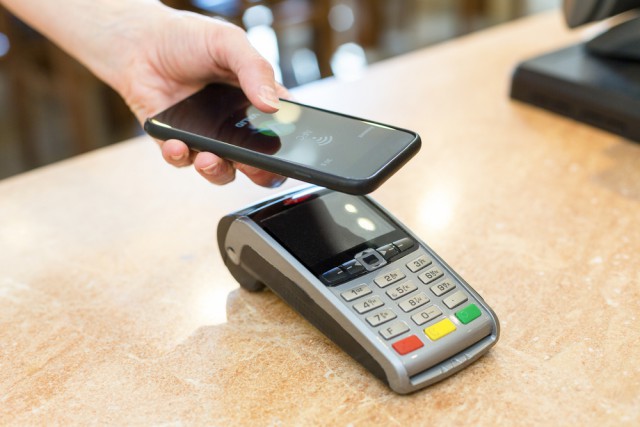
NHS hospitals hit by ransomware attack [Update: Now spreading globally]
Hospitals and doctors' surgeries across the UK have been hit by what is being described as a large scale ransomware attack.
The attack is believedto have begun at around 1:30 pm today. Areas affected include East and North Hertfordshire, North Cumbria, Blackpool, and Barts Health in London.
Majority of UK workers blindly open email attachments
Come on, people. We’re almost halfway through 2017, and you’re still opening shady email attachments? Glasswall Solutions seems to think so. As a matter of fact, its new report says UK workers are "too trusting" of email attachments.
More than half, 58 percent, "blindly" open email attachments from unknown sources. Three quarters, 75 percent, recognize how often they get shady emails. Just 16 percent thinks they should be worried about a cyber-attack.

British voters concerned about the impact of fake news on elections
With the UK's general election campaign now in full swing, a new study of 2,000 adults finds that 68 percent are concerned that fake news could influence the outcome.
In addition, 26 percent are not confident in their ability to identify a fake story and a further 39 percent were unsure if they had ever seen one. This makes Facebook’s decision to publish tips on spotting fake news timely.

UK businesses spent £1.74bn on IT outsourcing in Q1 2017
Companies are ramping up investment in digital transformation, and it’s showing. This is according to a new report by Arvato, which says Q1 2017 was the strongest in the last five years when it comes to the UK’s private sector outsourcing market.
During Q1, businesses have agreed deals worth £2.42 billion. The Arvato UK Outsourcing Index, created in partnership with NelsonHall, says this is the "largest private sector spend since Q4 2011."

Barclays announces new controls for debit cards to fight fraud
Barclays is fighting back against fraud by offering its users more power over when and how their debit cards can be used. According to its announcement, customers will be able to instantly turn a card "on" or "off," disallowing remote purchases. They will also be able to set their own daily ATM withdrawal limits through the Barclays Mobile Banking app.
The new controls are part of the £10 million nationwide drive to increase the public’s awareness of financial fraud risks.

UK businesses will spend £37bn on failing agile projects
Businesses in the UK will waste £37 billion on failed agile IT projects in the next 12 months, according to a new report from 6point6. The report is based on a poll of 300 UK and US CIOs. They were asked about their experiences with agile, and how its principles are being applied and executed.
More than half of CIOs (53 percent) see agile development as "discredited," and three quarters (75 percent) don’t even want to defend it any more. Seventy-three percent of CIOs think agile IT is its own industry now, and 50 percent consider it an "IT fad."

Cyber squatters target UK bank domains
Part of the art of making a phishing attack successful is having a domain name that looks sufficiently similar to a legitimate one not to arouse suspicion in the target.
Research by threat intelligence specialist DomainTools has uncovered over 300 registered domains using the names of five of the UK's top high street banks.

Four million Brits can't work from home because of poor connectivity
If your telecom's poor connectivity is preventing you from working from home, you're not alone. There are four million Brits suffering from the same woes, according to new research from uSwitch.com, the price comparison and switching service.
In the past year, almost half (43 percent) of employees in the UK have worked from home at least once. Among the younger workforce, those aged 18 - 34, the percentage jumps to 55. Yet, 58 percent have suffered from slow speeds and poor call quality. The problems were so pervasive that 46 percent of those with issues believe they can no longer work from home until something changes.

Many UK SMBs don't have a succession plan
More than half (52 percent) of small and medium-sized businesses in the UK’s IT sector have no idea what they’d do if key staffers decide to quit. This is according to a new report by the Aldermore Future Attitudes, which claims these businesses are lacking a succession plan.
The report puts things in a dangerous perspective -- 22 percent of SME IT businesses see senior executives leaving as their biggest business threat.

77 percent of British consumers have worries about new payment methods
This week South Korea takes the first steps towards becoming a coinless society as shoppers will be handed pre-paid cards instead of change in a country-wide trial. If the trial is successful, bank officials will allow change to be transferred straight into the shoppers' bank accounts by next year.
But a new report from global law firm Paul Hastings shows that security fears are preventing many British consumers embracing new payment technologies. The study of over 2,000 consumers finds 77 percent are worried about using new payment methods.

UK companies losing money due to inadequate communication and collaboration tools
Inefficient communications and poor collaboration costs UK companies £8,000 per employee, every year, according to a new report by enterprise communications company Mitel. That means that a business with 500 employees or more could be losing more than £4 million every year.
Looking into productivity within the workplace, Mitel’s new report also says that employees lose nearly a day every week due to inadequate communications capabilities.

Hackers are going for your healthcare data
Every eighth person in England has had their healthcare data breached. This is the conclusion of a new report just released by Accenture. Based on a poll of 1,000 people it says that more than half of those who experienced a data breach (56 percent), were in fact, victims of medical identity theft.
The report also says that these data breaches are fairly expensive, too. On average, more than three quarters (77 percent) have had to pay roughly £172 in out-of-pocket costs, per incident.

Most Brits can't explain what ransomware is
Despite the fact that the media is constantly buzzing with stories of successful ransomware attacks, the general public in the UK is largely unaware of the threat.
Backup experts Acronis polled Brits, and in their report it says that 60 percent of respondents would not be able to explain what ransomware actually is. Sixteen percent "just heard of it," while seven percent say they could "definitely" explain what ransomware is. Fifteen percent "probably could"

Demand for IT contractors in UK is rising
Demand for IT contractors has strengthened over the past six months despite the uncertainty caused by the vote to leave the European Union. At first glance this seems counterintuitive.
Historically, contractors have been the first into and first out of a period of economic malaise or even just uncertainty. The fear was that the EU referendum result would send the jobs market into a tailspin, and that contractors would be first to feel the pain. They are, after all, a flexible resource and it is much more cost effective for organizations to divest themselves of contractors than employees. In the months leading up to the referendum last June, that is exactly what we saw. Demand for contractors weakened as organizations hesitated over their IT investments until some measure of clarity was achieved.

UK SMBs losing money filing taxes
Almost half of all SMBs in the UK (49 percent) have lost money in the digital tax submission process, signaling that there is still a lot more work to be done before the Make Tax Digital initiative is completed successfully.
This is according to a new report by cloud accountancy software Pandle, which surveyed 1,000 UK SMBs. The report says that SMBs lost money despite feeling well-informed on the recent changes to the system.
